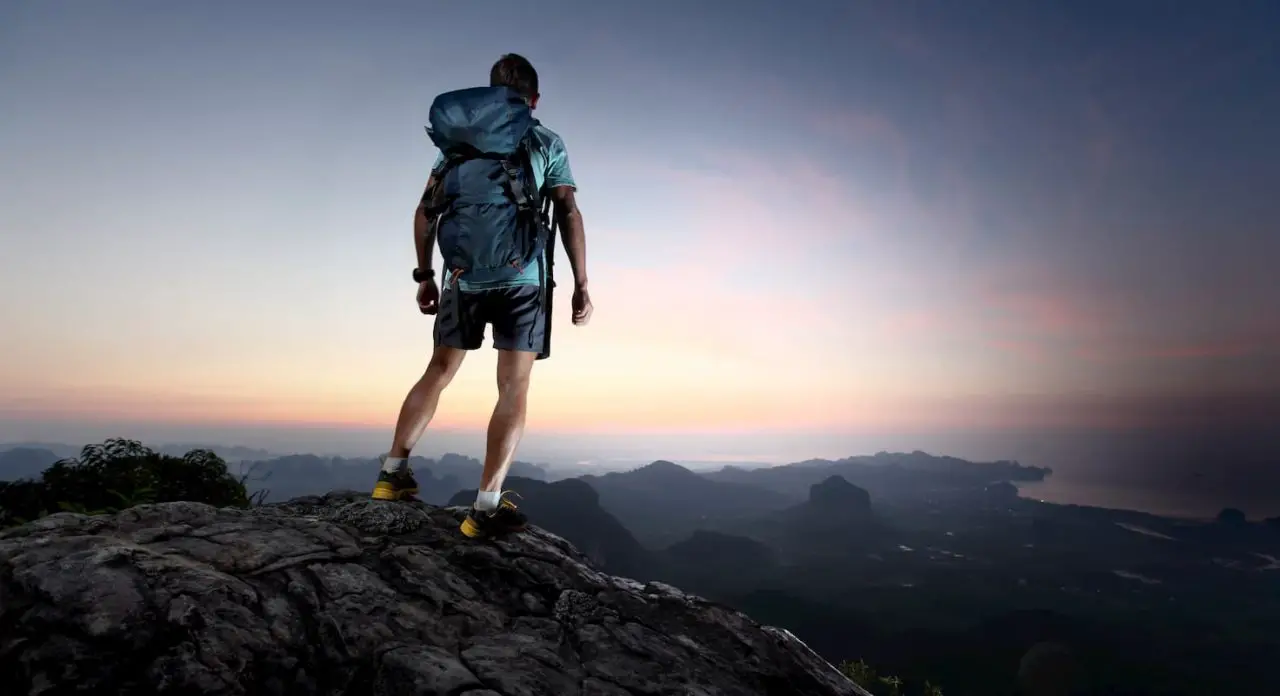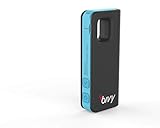If you are someone who is planning his or her first backpacking, you should start with making a list of things you need for the adventure. Taking something with you that can help you determine where you are and which way should you go is a complete no-brainer. So, you must be wondering, “Do I need a GPS for backpacking?”
Yes, you definitely need a GPS for backpacking in the backcountry or new places. Without the help of a GPS, you might get lost which is never a good thing to happen. Not only that modern GPS systems have loads of other uses that can make backpacking a smoother experience.
In this article, I will be talking about the usefulness of GPS in backpacking and hiking from my own experience. As an experienced hiker, I can tell you that carrying a GPS device can make your adventure much easier and comfortable. So, keep reading till the end to get a proper idea.
The Benefits of Using GPS for Backpacking
Global Positioning System or GPS is a revolutionary invention in the field of navigation and positioning systems. GPS was first used by the military and Navy of the USA. But, nowadays, it is available and affordable for everyone.

Scientists, doctors, farmers, pilots, delivery services, fishermen, athletes, hikers, and people of many other professions use GPS devices daily. The device has become extremely useful for backpacking lovers who want to have adventures faraway in unfamiliar locations.
Here is how GPS can assist you in your backpacking journeys.
Planning before Starting Backpacking
Before you go on backpacking for the first time, it is better for you to make a plan for your routes. You can map your trails by marking a starting point and endpoint of your journey. There are many modern GPS devices and Apps which have software and maps that help you to plan your trip.
These GPS systems will help you to find routes, put markers, and checkpoints. You can even share the digital map with others and download the map for offline use.
Finding Location and Position
Backpacking is all about adventure and exploring new places. So, you may get lost now and then or get out of your planned route. It can be a little scary for people who travel alone.
However, you do not need to worry much if you have a GPS with you. All you need to do is keep your GPS tracking system on.
You can find out exactly where you are from your GPS tracker. Use the coordinates to find your position. The digital map on the GPS will show you where your destination is and where you are at the moment.
When you find your destination, you will also see different paths to reach there and the time needed for the trips.
Keeping Trip Records and Marking Trails
While tracking new places, people may end up walking on the same path again and again. Finding tracks in forest areas full of trees can be quite confusing.
GPS devices help hikers to keep track of the paths they have followed. The GPS can provide you information on miles covered, average walking speed, total walking time, and total resting time.
The information is important for people who want to improve their performance for the next backpacking. Hikers often revisit places for a better experience. Therefore, keeping a record of your explorations is crucial for you.
Tracking People and Cars
People often love to go backpack camping with their friends and families. Sometimes, you or someone else from the group may get lost or off the track.
In situations like these, you can find your fellow campers with GPS trackers. So, everyone in the group needs to keep the GPS tracking system active all the time.
Sometimes we have to leave our cars or bikes far from camping sites. If you are lost in tracks and want to return to your car, use your GPS tracker to locate where your car is parked. Besides, it also allows you to keep an eye on your vehicles.
Search and Rescue
It is better to be careful when you are backpacking. You may get lost or face something unexpected on the journey. So, keep a navigation app on your GPS device or smartphone so that you can easily contact the nearby rescue teams.
GPS tracking system allows your friends and family members to keep track of your whereabouts. So, if you do not respond or communicate with them, they are able to search and find you.
Nearby Area Searches
You may need to go to places or buy necessary things. The GPS nearby area scanning system lets you find places like grocery stores, gas stations, police stations, hotels, and restaurants.
GPS devices provide you with accurate and real-time data. So, you see different routes to go to the necessary places and how long it will take you to reach there.
Weather Forecasts
One of the biggest problems for backpacking and hiking is the unpredictable weather. GPS devices also work as a digital compass and a barometer. They can receive altitude data provided by the satellites and give you accurate weather forecasts.
It tells you how the weather is going to be. For example, the devices show if it is going to be a rainy day or a sunny day. So, you can take the necessary precautions for the day. Seeing the forecast, you will be able to take shelter, turn back to camping sites, or change your tracking path.
Where Can You Use a GPS?
GPS devices function on the signals sent by the GPS satellites around the globe. So, it works pretty much everywhere, especially in open places like mountains, deserts, meadows, plain lands, and even in forest areas.
But sometimes satellites may not provide signals or provide limited signals. As a result, the receiving system of GPS may not work. However, GPS will start working properly once it starts getting signals.
It should be noted that you may get limited satellite signals in places like caves, tunnels, narrow canyons, and places without a decent view of the sky, like dense forests covered with lots of trees.
Moreover, GPS devices will not give their best performance indoors. But smartphones give you more data as they can access WiFi and internet connections. Besides, GPS devices will not work if you keep them covered, such as putting them inside your backpack or in your pocket.
Which GPS Device Should You Choose?
So, now that you have learned about the benefits of using GPS devices and where it works, you should choose the right GPS devices for your backpacking.
People have different preferences regarding GPS devices. Some prefer handheld GPS devices like the Garmin InReach Mini, and some others will use smartphones or smartwatches.
Handheld GPS devices like the BivyStick are quite simple to use and operate. They have a few buttons and typically will link to a smartphone or use their own small screen to show information. You can easily carry it in your hand or hang it on you.
Experienced hikers are quite familiar with this device. But if you are someone new who never used a GPS device, you should learn how to operate it before you start your journey.
Then, there are smartphones. I personally prefer using my smartphone as my link to Guthook and access to trail details apps can provide.
We carry our phones everywhere with us anyway. So, you can look to install a few apps that can help you use the GPS more efficiently.
Most phones have larger screens than a GPS device and can access google map’s detailed satellite view of the area. The main benefit is that a smartphone is a much more multipurpose device that can provide you a lot more than a simple GPS device.
Apart from choosing the right device, you also have to consider the durability and accuracy of the devices. Choosing a device that has long battery life, simple to use, and easy to carry with you would be the ideal thing to do for any traveler.
Using Your Smartphone vs GPS for Hiking
One frequent thing that backpackers will say when they are new is that they have a phone which has built in GPS for navigation so they don’t feel the need to have a dedicated GPS device.
The worry in this situation is that you can lose overall cell reception and this will leave you very stranded as the GPS may still not be able to pinpoint you and you won’t be able to reach out for the necessary help if it is needed.
A key difference between your cell phone or smartphone and a full-fledged GPS is the ability for the GPS device to communicate without the need of a cell signal, including calling in a rescue should it be necessary.
What a GPS is to a hiker and backpacker is a way to ensure that even when not able to access a cell signal you get the opportunity to let those at home know you are safe.
In addition, with many of these units like the InReach Mini, you can actually provide family and friends a login so that they could see your position if they wanted to check up on you and your progress.
Final Thoughts on Do I Need a GPS for Backpacking
While many may wonder why you would want to spend money monthly on a device to communicate when you carry a phone, while this is technically true there are large limits on cell viability and reception.
A GPS may not be used consistently or frequently but when it is used it is typically due to situations that it is singularly perfect to help you and ensure loved ones know your status or rescuers know exactly where to find you.
Best GPS Devices Available From Amazon
| Image | Title | Price | Prime | Buy |
|---|---|---|---|---|
Top | Garmin 010-01879-00 InReach Mini, Lightweight and Compact Satellite Communicator, Orange | PrimeEligible | Buy Now | |
 | Garmin inReach Explorer+, Handheld Satellite Communicator with Topo Maps and GPS Navigation | PrimeEligible | Buy Now | |
 | ZOLEO Satellite Communicator – Two-Way Global SMS Text Messenger & Email, Emergency SOS Alerting, Check-in & GPS Location – Android iOS Smartphone Accessory | PrimeEligible | Buy Now | |
 | Bivy Stick Blue | Prime | Buy Now | |
 | Spot 3 Satellite GPS Messenger - Orange | PrimeEligible | Buy Now |

